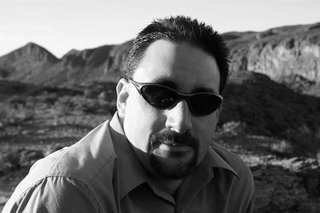Note To George W. Bush: Game Over Dude
It's just seven days into the Obama administration and apparently George W. Bush doesn't realise that he's no longer President of the United States.
You may recall that in May of 2008, former Bush adviser Karl Rove was subpoenaed by the House Judiciary Committee to testify on the firing of U.S. attorneys as well as, the prosecution of former Alabama governor Don Siegelman. Mr. Rove's response was to decline, asserting that he was exempt under executive privilege. On July 30, 2008, a US Congressional panel voted 20-14 to hold Rove in contempt of Congress.
Arrest, try, convict, right?
Not so fast. While Congress can hold someone in contempt, it's up to the Attorney General to go forward with the prosecution. As you might imagine, the Bush Justice Department declined. And so Rove went on to become another tool in the Fox News tool box.
Fast forward to 2009.
On January 26, Chair of the House Judiciary Committee, John Conyers, again issued a subpoena requiring that Mr. Rove testify before his committee. Sounds like a slam dunk, right? Well not according to Rove, who is now asserting that executive privilege applies even though Mr. Bush has left office. It's a ridiculous claim when one considers that the Supreme Court has rendered opinions on the matter before. Most notable is that of Chief Justice Burger who stated that "executive privilege would most effectively apply when the oversight of the executive would impair that branch's national security concerns."
So how exactly does Mr. Rove testifying on the firing of U.S. Attorneys constitute a national security concern?
Answer, it doesn't. But then the rule of law was never a strong suit of President Bush who can count among his executive privilege gems:
• preventing the disclosure of details about Vice President Dick Cheney's secret meetings with energy executives.
• stopping the release of document to Congress relating to Pat Tillman's friendly fire shooting death.
• preventing the investigation of whether the the firing of U.S. Attorneys was politically motivated.
Hmmmm . . .
Now executive privilege has a place in government. To be fair, lots of Presidents have used it before, including George Washington. A President needs to be able to receive the unfettered counsel of his or her advisers. But the Supreme Court has been clear that when claimed, its use should be narrow in scope. In other words, it should be the exception rather than the rule. And there's one other thing . . . No President has ever tried to use it after they were out of office. Perhaps no one told W. that his game is over.
Repeat after me. Arrest, try, convict, repeat. Arrest, try, convict, repeat.
You may recall that in May of 2008, former Bush adviser Karl Rove was subpoenaed by the House Judiciary Committee to testify on the firing of U.S. attorneys as well as, the prosecution of former Alabama governor Don Siegelman. Mr. Rove's response was to decline, asserting that he was exempt under executive privilege. On July 30, 2008, a US Congressional panel voted 20-14 to hold Rove in contempt of Congress.
Arrest, try, convict, right?
Not so fast. While Congress can hold someone in contempt, it's up to the Attorney General to go forward with the prosecution. As you might imagine, the Bush Justice Department declined. And so Rove went on to become another tool in the Fox News tool box.
Fast forward to 2009.
On January 26, Chair of the House Judiciary Committee, John Conyers, again issued a subpoena requiring that Mr. Rove testify before his committee. Sounds like a slam dunk, right? Well not according to Rove, who is now asserting that executive privilege applies even though Mr. Bush has left office. It's a ridiculous claim when one considers that the Supreme Court has rendered opinions on the matter before. Most notable is that of Chief Justice Burger who stated that "executive privilege would most effectively apply when the oversight of the executive would impair that branch's national security concerns."
So how exactly does Mr. Rove testifying on the firing of U.S. Attorneys constitute a national security concern?
Answer, it doesn't. But then the rule of law was never a strong suit of President Bush who can count among his executive privilege gems:
• preventing the disclosure of details about Vice President Dick Cheney's secret meetings with energy executives.
• stopping the release of document to Congress relating to Pat Tillman's friendly fire shooting death.
• preventing the investigation of whether the the firing of U.S. Attorneys was politically motivated.
Hmmmm . . .
Now executive privilege has a place in government. To be fair, lots of Presidents have used it before, including George Washington. A President needs to be able to receive the unfettered counsel of his or her advisers. But the Supreme Court has been clear that when claimed, its use should be narrow in scope. In other words, it should be the exception rather than the rule. And there's one other thing . . . No President has ever tried to use it after they were out of office. Perhaps no one told W. that his game is over.
Repeat after me. Arrest, try, convict, repeat. Arrest, try, convict, repeat.


0 Comments:
Post a Comment
<< Home